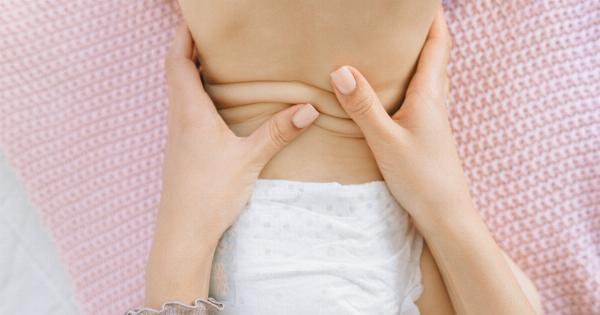After giving birth, many women wonder when they can resume sexual activity. The answer to this question varies depending on individual circumstances, but in general, doctors recommend waiting at least six weeks after vaginal delivery before having sex.
This is because the body needs time to heal after childbirth, and having sex too soon can lead to complications.
Factors Affecting When You Can Have Sex After Giving Birth
While the six-week guideline is a general rule of thumb, there are several factors that can affect when you are ready to have sex again after childbirth. These include:.
- The type of delivery you had (vaginal or cesarean section)
- Whether you had any complications during delivery or postpartum
- Whether you are breastfeeding
- How you feel physically and emotionally
Recovering from Vaginal Birth
If you had a vaginal birth, your body will need time to heal before you can have sex again. This is because the vaginal walls and perineum can tear or stretch during delivery, and need time to heal.
Your doctor will usually recommend waiting at least six weeks after delivery before you resume sexual activity. This gives your body time to heal, and helps to reduce the risk of infection or other complications.
It is also worth noting that if you had a particularly difficult delivery or if you had an episiotomy (a small incision made in the perineum to help the baby’s exit), you may need longer to recover before having sex again.
In these cases, your doctor will advise you on when it is safe to resume sexual activity.
Recovering from Cesarean Section
If you had a cesarean section (C-section), your body will need more time to heal before you can have sex again.
Doctors usually recommend waiting at least six weeks after delivery before having sex, but you may need longer if you experience complications or if it takes longer for the incision to heal.
Breastfeeding and Postpartum Sex
If you are breastfeeding, your body produces hormones that can affect vaginal dryness and libido. This means that you may experience discomfort during sex, or find that you are not as interested in sex as you were before giving birth.
It is important to communicate with your partner and discuss any concerns or discomfort you may be experiencing.
It is also worth noting that breastfeeding can have an impact on your menstrual cycle. For some women, breastfeeding can delay the return of their menstrual period, which can make it more difficult to predict ovulation and conceive another child.
When to Resume Other Sexual Activities
While vaginal sex should be avoided for at least six weeks after delivery, this does not mean that all sexual activities are off-limits.
Couples can still engage in other sexual activities that do not involve vaginal penetration, such as oral sex or masturbation. However, it is important to communicate openly with your partner and make sure that you are both comfortable with any sexual activities you engage in.
Preparing for Postpartum Sex
Before resuming sexual activity after giving birth, it is important to take some time to prepare your body and mind. This can include:.
- Doing pelvic floor exercises to help strengthen the muscles that support the uterus, bladder, and rectum
- Using a lubricant to help reduce discomfort during sex
- Talking to your partner about any concerns or discomfort you may experience
- Being patient and taking things slow. It may take some time to feel comfortable and enjoy sex again after giving birth.
When to Consult Your Doctor
While it is normal to experience some discomfort or awkwardness when resuming sexual activity after giving birth, it is important to consult your doctor if you experience any of the following symptoms:.
- Pain or discomfort during sex
- Bleeding or discharge from the vagina
- Fever or chills
- Increased vaginal discharge with a foul odor
If you experience any of these symptoms, it may indicate an infection or other complication that needs to be treated.
Conclusion
Resuming sexual activity after giving birth is a personal decision that should be made based on individual circumstances.
While doctors generally recommend waiting at least six weeks after delivery before having sex, it may take longer depending on individual factors such as the type of delivery, breastfeeding, and physical and emotional recovery.
It is important to communicate openly with your partner, take things slow, and listen to your body when deciding when to resume sexual activity after childbirth.
With patience and understanding, couples can navigate the postpartum period and enjoy a fulfilling sex life once again.































